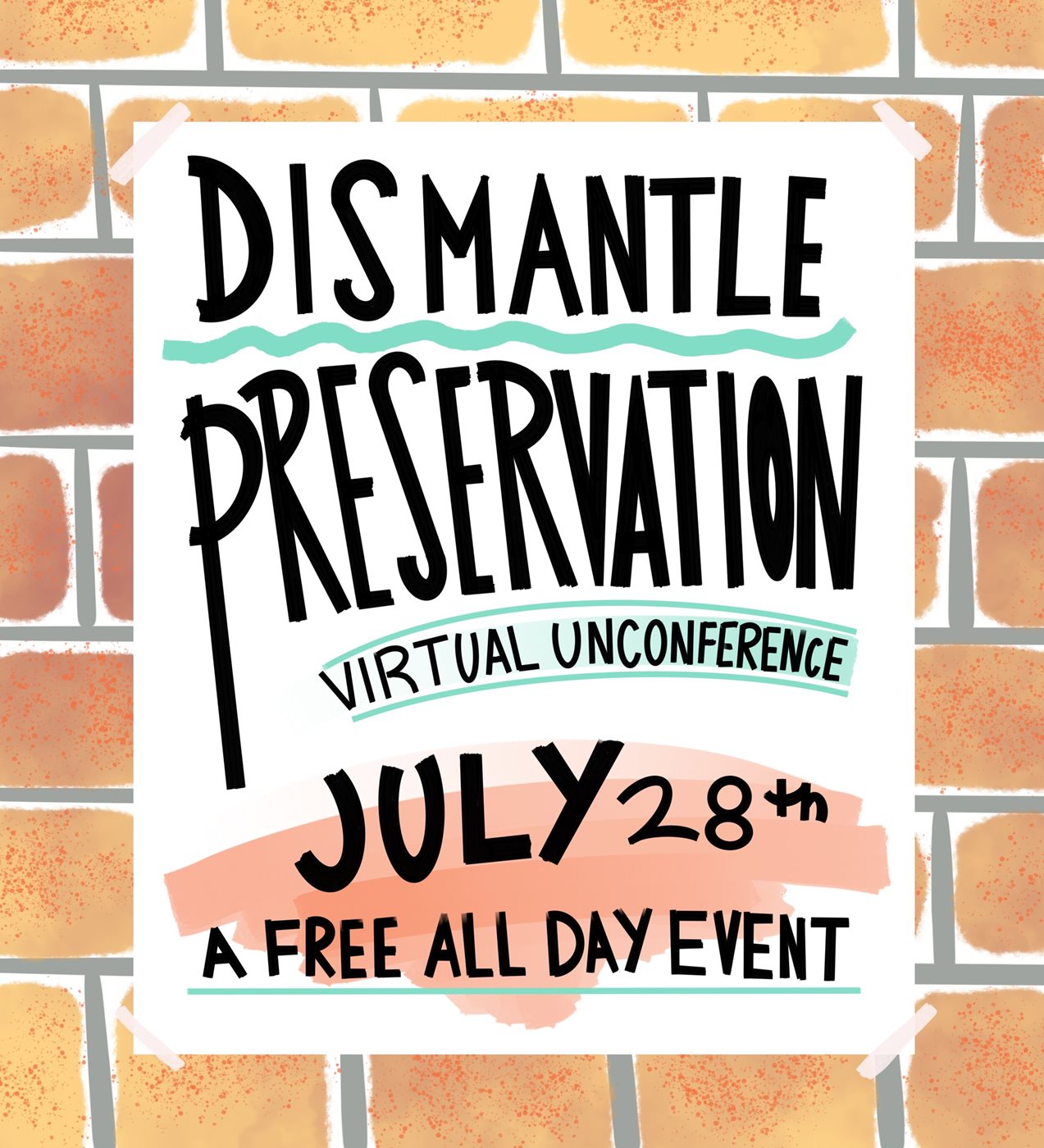July 2020

This week, I attended a “virtual unconference”, organized by my professional field’s Facebook group. It was quite an eye-opening experience, and I wanted to share a few thoughts with you. First of all, the theme of this event was to dismantle the conventional ideas and talking points in my field - historic preservation or heritage conservation. I got to listen to panelists talking about mental health issues for people of color in this profession; unionizing and combating workplace discrimination of all forms; as well as issues surrounding student loan debts. These were topics that almost never appeared in the traditional, formal, large-scale conferences in my field! Because of the current situation, in which we face public health and financial crisis, all of these topics became very important and urgent for us to think about. I was so glad that people were able to have an open and honest conversation about these topics. I think the virtual format also contributed to the wider accessibility of this conversation.
Secondly, the group of speakers of this virtual event were very diverse. The organizer said that while usually when they invite speakers to a conference (meaning, on-site that involves travel and time commitment), only less than half of the invitees would agree to participate. However, this time, 9 out of 10 invitees agreed to give a talk about their research and practices in the community. We have speakers who work on African American heritage, Latinx heritage, Asian American heritage, heritage of the Pacific Islands, Native American and Indigenous heritage, etc., and they work in many different regions and environmental settings throughout the whole United States. Such dialogue across cultures, geographical boundaries, and time zones is exactly the benefit that a virtual event format can bring. And I enjoyed it so much when people talk about how important that is to have such conversations going, even if things are back on-site in the future.
Because the success of my field depends on not only scholarly research, but also community engagement, I can see the positive side of virtual communication and collaboration. I believe that many other fields would benefit from our current “all virtual” event format as well. If you are an organizer or leader of a project, and you’re brainstorming about collaborative platforms, think outside of the box! Think how online collaboration could benefit your project in non-traditional and unprecedented ways, and don’t be afraid to try things out. The good thing is that we are all being extra patient right now, due to the constant changes and uncertainties. So I think the bright side of this situation is that we can take advantage of this virtual environment, start to join more conversations and push our research and practice to a wider audience.
For more information of the “virtual unconference” I was in, visit: https://www.sarahmarsom.com/dismantlepreservation Sarah Marsom was the organizer of this Facebook group and event, and she designed the poster.
Mingqian Liu | Architecture
----Mingqian Liu is a fourth-year doctoral student in the Department of Architecture